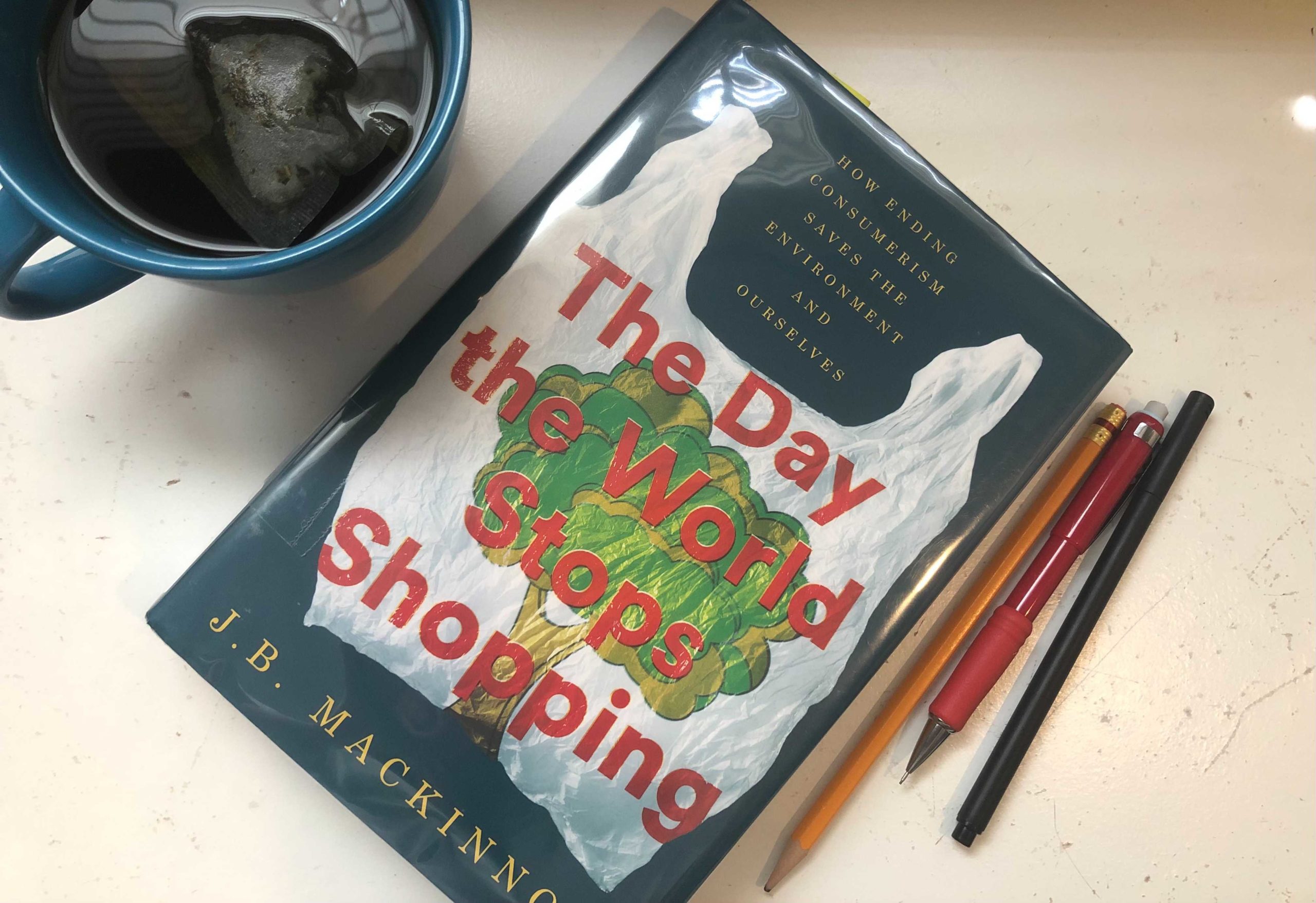What if every human on Earth stopped shopping? How would the global economy adapt? How would we adjust? J.B. MacKinnon, an independent award-winning journalist, seeks to answer these questions in his book “The Day The World Stops Shopping,” which was released on May 18.
MacKinnon’s investigative-journalism piece is both informative and well-sourced, exploring the implications of a creative solution to an array of pressing issues — climate change, water depletion and deforestation — caused in part by overconsumption.
Our lives are ruled by consumerism, argues MacKinnon; we spend money on commodities like the trendiest clothes, the newest tech and our daily Starbucks. Items we once saw as luxuries, like air conditioning, have become essential in our everyday lives.
MacKinnon says many assume that, to save our Earth from imminent environmental threats, we must switch to greener product alternatives. But maybe, he writes, the solution is to stop buying products entirely — or at least buy less than we do now.
“Nothing we have done to green our consumer appetite has been able to keep pace with how quickly that appetite is growing, to the point that the unwavering dedication to greening has become particular if not absurd,” he writes. “If we wish to lessen the harms caused by consumption, why not consider … consuming less?”
MacKinnon draws in a wide reader base by using a simple yet informative tone, and he either avoids using or explains scientific jargon.
The book is divided into four sections: first days, collapse, adaptation and transformation. These sections provide a framework for sorting MacKinnon’s one-off stories, each only a few pages in length. The stories are designed to showcase how different people’s and companies’ experiences would be affected if the world stopped consuming.
These stories are written with different perspectives in mind — light pollution, fast fashion and more. While the book rapidly jumps between these chapters, it is easy for readers to savor each story as its own piece of journalism.
The book thrives on MacKinnon’s excellent sourcing, which includes both scientific evidence and interviews.
For example, he begins the book with observations from the Kalahari Desert of Namibia, located in southwest Africa, recounting interviews he collected from a nearby tribe on their simplistic way of living. Through this story, MacKinnon seeks to showcase the possibility that our society can revert to simplistic living. Besides this source, he cites data from United Nations scientists, other environmentalist writers, company executives and economists. The range of perspectives included in his book allows readers to see all sides of the topic.
Additionally, MacKinnon looks at certain issues through the lens of the pandemic — drawing upon circumstances to which many readers can relate. During the start of the pandemic, people almost “stopped shopping.” Hesitant to leave their homes, they relied on what they already had. Thus he sometimes notes the reality marked at the beginning of the pandemic — everyone in the world stopped shopping.
Before reading this book, I was not familiar with the impact consumerism could have on the environment. By the end, I realized that consumerism negatively affects our environment, and that by reducing our collective consumption by even a third, we can work toward solving many of the environmental issues of our time.
It is not enough, MacKinnon concedes, that an individual or a few change their shopping habits. To create change, the human race must reduce the amount we collectively consume.
Even so, the book doesn’t explain how we can reduce our collective consumption. The beauty of “The Day the World Stops Shopping” is that MacKinnon instead prompts the reader to seek out other resources, allowing them to conduct further research and take action as they see fit.
